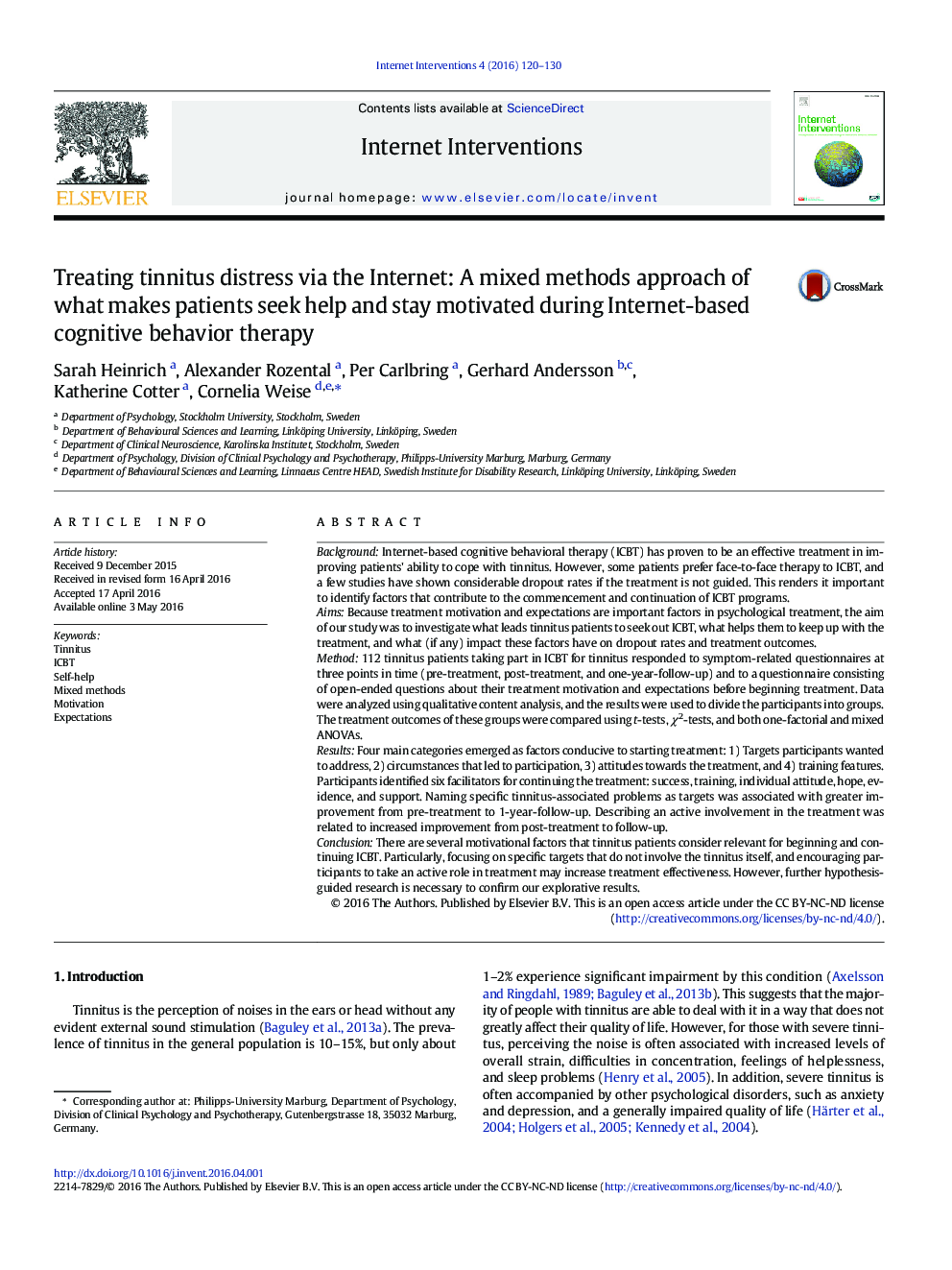| کد مقاله | کد نشریه | سال انتشار | مقاله انگلیسی | نسخه تمام متن |
|---|---|---|---|---|
| 555427 | 874099 | 2016 | 11 صفحه PDF | دانلود رایگان |
• Analysis of tinnitus patients’ explanations what makes them seek and keep up an Internet-based treatment
• Most participants started treatment to address the tinnitus and its accompanying problems, or due to a lack of alternatives
• Especially treatment success and helpful training contents were regarded as important for keeping up motivation
• Having specific targets other than the tinnitus and taking an active role might be beneficial for treatment outcome
BackgroundInternet-based cognitive behavioral therapy (ICBT) has proven to be an effective treatment in improving patients' ability to cope with tinnitus. However, some patients prefer face-to-face therapy to ICBT, and a few studies have shown considerable dropout rates if the treatment is not guided. This renders it important to identify factors that contribute to the commencement and continuation of ICBT programs.AimsBecause treatment motivation and expectations are important factors in psychological treatment, the aim of our study was to investigate what leads tinnitus patients to seek out ICBT, what helps them to keep up with the treatment, and what (if any) impact these factors have on dropout rates and treatment outcomes.Method112 tinnitus patients taking part in ICBT for tinnitus responded to symptom-related questionnaires at three points in time (pre-treatment, post-treatment, and one-year-follow-up) and to a questionnaire consisting of open-ended questions about their treatment motivation and expectations before beginning treatment. Data were analyzed using qualitative content analysis, and the results were used to divide the participants into groups. The treatment outcomes of these groups were compared using t-tests, χ2-tests, and both one-factorial and mixed ANOVAs.ResultsFour main categories emerged as factors conducive to starting treatment: 1) Targets participants wanted to address, 2) circumstances that led to participation, 3) attitudes towards the treatment, and 4) training features. Participants identified six facilitators for continuing the treatment: success, training, individual attitude, hope, evidence, and support. Naming specific tinnitus-associated problems as targets was associated with greater improvement from pre-treatment to 1-year-follow-up. Describing an active involvement in the treatment was related to increased improvement from post-treatment to follow-up.ConclusionThere are several motivational factors that tinnitus patients consider relevant for beginning and continuing ICBT. Particularly, focusing on specific targets that do not involve the tinnitus itself, and encouraging participants to take an active role in treatment may increase treatment effectiveness. However, further hypothesis-guided research is necessary to confirm our explorative results.
Journal: Internet Interventions - Volume 4, Part 2, May 2016, Pages 120–130
